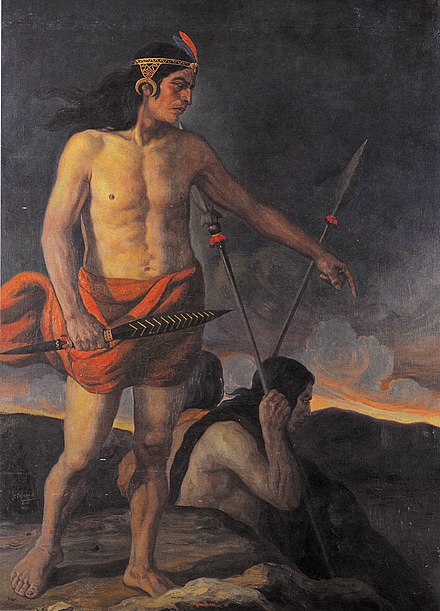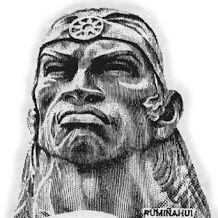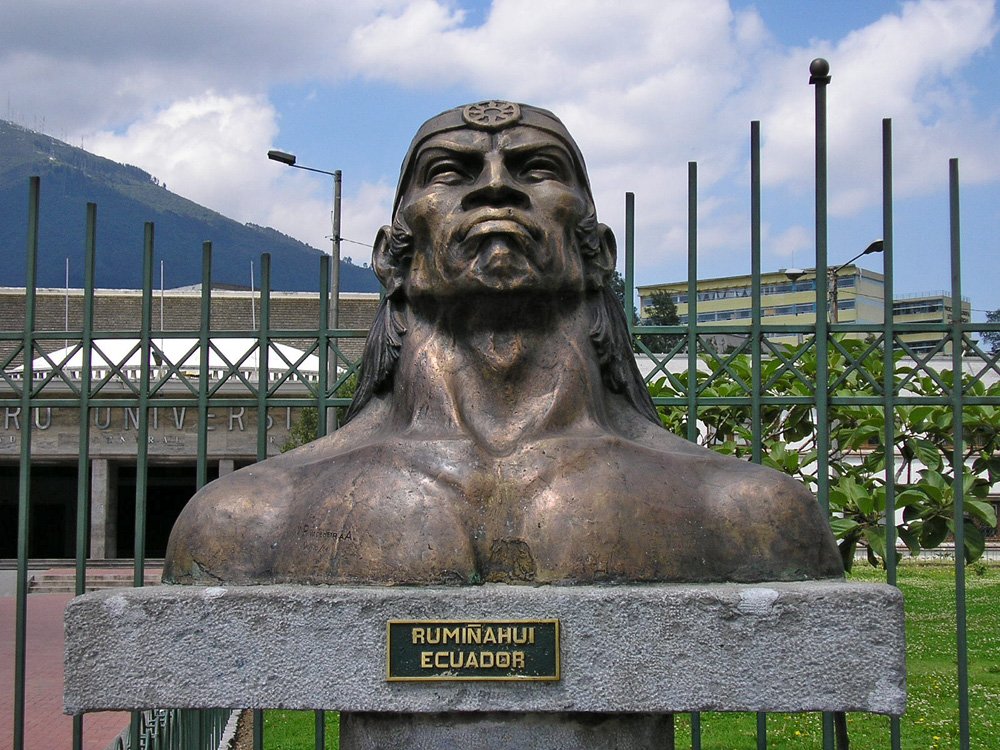Rumiñahui, also known as Rumiñawi or Ruminawi, was a prominent Inca warrior who played a significant role during the Spanish conquest of the Inca Empire. Here are some fascinating facts about Rumiñahui:
Leadership and Resistance:
Rumiñahui was one of the Inca commanders who led the resistance against the Spanish conquistadors after the capture of the Inca emperor Atahualpa in 1532. He played a vital role in organizing and leading military campaigns against the Spanish forces.
Strategic Retreat:
After the execution of Atahualpa, Rumiñahui led a strategic retreat, moving the Inca capital from Cusco to Vilcabamba, deep in the Andean mountains. This move allowed the Inca resistance to regroup and continue the fight against the Spanish invaders.

Guerrilla Tactics:
Rumiñahui employed guerrilla warfare tactics to harass the Spanish forces and disrupt their supply lines. His tactics involved surprise attacks, ambushes, and hit-and-run strategies, which proved effective against the more technologically advanced Spanish army.

The Burning of Quito:
In 1534, Rumiñahui set fire to the Inca city of Quito to prevent it from falling into the hands of the Spanish. Rather than let the city become a symbol of Spanish victory, he ordered its destruction, resulting in significant damage to the city and its valuable treasures.
Capture and Tragic End:
Despite his efforts, Rumiñahui was eventually captured by the Spanish forces in 1535. To prevent his captors from discovering the hidden treasures of the Inca Empire, he ordered them to be thrown into the nearby Lake Yahuarcocha. Legend has it that he later revealed the treasures' location with the famous phrase, "If the traitor wants gold, tell him to seek it in the depths of the lake of Yahuarcocha."
Controversial Death:
After his capture, Rumiñahui was tortured by the Spanish in an attempt to extract information about hidden treasures. Tragically, he died under torture without revealing the secrets. His death is seen as a symbol of the Inca resistance and their refusal to yield to Spanish domination.

Rumiñahui's bravery, strategic skills, and unwavering resistance against the Spanish conquest make him a significant figure in Inca history and a symbol of the indigenous resistance against colonization.